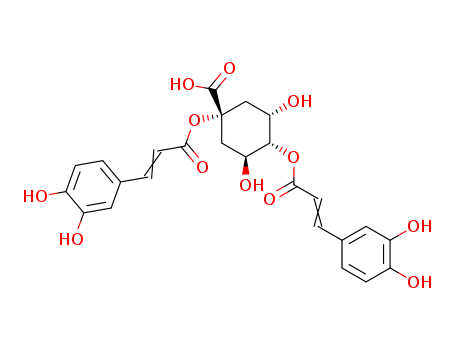- Min.Order :0
- Purity:
Keywords
Quick Details
- Appearance:
- Application:
- PackAge:
- ProductionCapacity:
- Storage:
- Transportation:
Superiority:
1. Cynara cardunculus extract 2. Brown powder 3. 3%,1.5% by HPLC 4. CAS No. 1182-34-9 5. ISO9001 SHKS009 Artichoke Extract Pow…
Details:
1. Cynara cardunculus extract 2. Brown powder 3. 3%,1.5% by HPLC 4. CAS No. 1182-34-9 5. ISO9001 SHKS009 Artichoke Extract Powder Cynara cardunculus extract The globe artichoke (Cynara cardunculus var. scolymus)is a perennial thistle of the genus Cynara originating in Southern Europe around the Mediterranean. It grows to 1.4–2 m (4.6–6.6 ft) tall, with arching, deeply lobed, silvery, glaucous-green leaves 50–82 cm (20–32 in) long. The flowers develop in a large head from an edible bud about 8–15 cm (3.1–5.9 in) diameter with numerous triangular scales; the individual florets are purple. The edible portions of the buds consist primarily of the fleshy lower portions of the involucral bracts and the base, known as the "heart"; the mass of immature florets in the center of the bud is called the "choke" or beard. These are inedible in older, larger flowers. Medical Use The total antioxidant capacity of artichoke flower heads is one of the highest reported for vegetables. Cynarin, an active chemical constituent in Cynara, causes increased bile flow. The majority of the cynarin found in artichoke is located in the pulp of the leaves,though dried leaves and stems of artichoke also contain it. It inhibits taste receptors, making water (and other foods and drinks) seem sweet. This diuretic vegetable is of nutritional value because of its exhibiting an aid to digestion,strengthening of the liver function and gall bladder function, and raising of the HDL/LDL ratio. This reduces cholesterol levels, which diminishes the risk for arteriosclerosis and coronary heart disease. Aqueous extracts from artichoke leaves have also been shown to reduce cholesterol by inhibiting HMG-CoA reductase and having a hypolipidemic influence, lowering blood cholesterol. Artichoke contains the bioactive agents apigenin and luteolin.C. scolymus also ...11. Artichoke Extract2. Brown powder3. 3%,1.5% by HPLC4. CAS No. 1182-34-95. ISO9001 SHKS009 Artichoke Extract Powder The globe artichoke (Cynara cardunculus var. scolymus)is a perennial thistle of the genus Cynara originating in Southern Europe around the Mediterranean. It grows to 1.4–2 m (4.6–6.6 ft) tall, with arching, deeply lobed, silvery, glaucous-green leaves 50–82 cm (20–32 in) long. The flowers develop in a large head from an edible bud about 8–15 cm (3.1–5.9 in) diameter with numerous triangular scales; the individual florets are purple. The edible portions of the buds consist primarily of the fleshy lower portions of the involucral bracts and the base, known as the "heart"; the mass of immature florets in the center of the bud is called the "choke" or beard. These are inedible in older, larger flowers. Medical Use The total antioxidant capacity of artichoke flower heads is one of the highest reported for vegetables. Cynarin, an active chemical constituent in Cynara, causes increased bile flow. The majority of the cynarin found in artichoke is located in the pulp of the leaves,though dried leaves and stems of artichoke also contain it. It inhibits taste receptors, making water (and other foods and drinks) seem sweet. This diuretic vegetable is of nutritional value because of its exhibiting an aid to digestion,strengthening of the liver function and gall bladder function, and raising of the HDL/LDL ratio. This reduces cholesterol levels, which diminishes the risk for arteriosclerosis and coronary heart disease. Aqueous extracts from artichoke leaves have also been shown to reduce cholesterol by inhibiting HMG-CoA reductase and having a hypolipidemic influence, lowering blood cholesterol. Artichoke contains the bioactive agents apigenin and luteolin.C. scolymus also seems to have a bifidogenic effect on beneficial gut bacteria. Artichoke leaf extract has proved helpful for patients with functional dyspepsia,and may ameliorate symptoms of IBS. Hot Production List
You Might Also Like
Related Searches
About|Contact|Cas|Product Name|Molecular|Country|Encyclopedia
Message|New Cas|MSDS|Service|Advertisement|CAS DataBase|Article Data|Manufacturers | Chemical Catalog
©2008 LookChem.com,License: ICP
NO.:Zhejiang16009103
complaints:service@lookchem.com Desktop View
